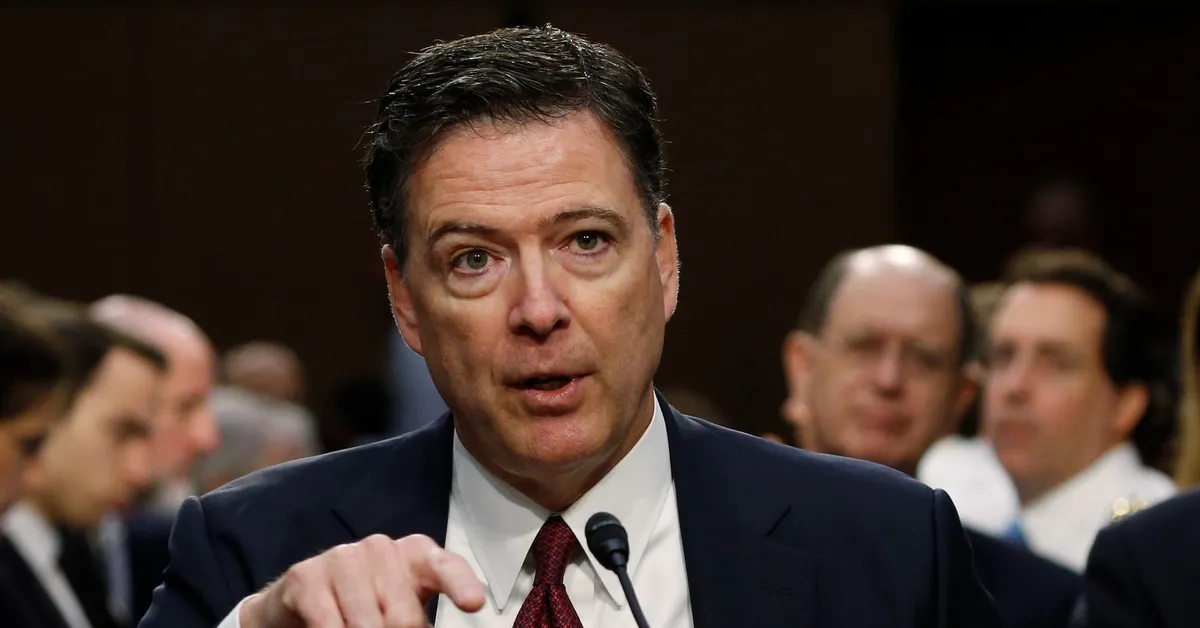
On September 25, 2023, James Comey, the former director of the FBI, was indicted on serious criminal charges, including false statements and obstruction. This development marks a significant escalation in President Donald Trump's ongoing campaign against individuals who have scrutinized or criticized him. The indictment, confirmed by a source familiar with the situation, signifies a contentious chapter in the political landscape of the United States.
James Comey served as the FBI director from 2013 until 2017, when he was abruptly fired by President Trump. This dismissal occurred early in Trump's presidency and was largely linked to Comey's role in the investigation of the 2016 election campaign's ties to Russia. Since then, Trump has consistently criticized Comey's handling of the FBI investigation, labeling it as a politically motivated witch hunt.
Since returning to office in January 2023, Trump's administration has been scrutinizing Comey's testimony before the Senate Judiciary Committee in 2020. During this testimony, Comey addressed Republican criticisms regarding the Russia investigation and denied authorizing the disclosure of sensitive information to the media. The current case against him is viewed as one of the most significant examples of the Trump administration utilizing its law enforcement power against a vocal critic.
The indictment was notably prompted after Trump publicly criticized U.S. Attorney General Pam Bondi for not acting swiftly enough to prosecute Comey. In a social media post, Trump asserted, "JUSTICE MUST BE SERVED, NOW," emphasizing his belief that no one is above the law. In response to the indictment news, Bondi stated that the Justice Department is committed to holding those who misuse their power accountable, although she did not specifically mention Comey.
The pursuit of charges against Comey has been met with skepticism within the Eastern District of Virginia, the U.S. attorney's office responsible for the case. Recently, the district's top prosecutor, Erik Siebert, resigned after facing backlash from Trump for questioning the strength of the evidence against Comey. Additionally, other prosecutors in the office have advised Siebert's successor, Lindsey Halligan, against filing charges, citing insufficient evidence.
Trump and Comey's relationship has been fraught with tension since the beginning of Trump's presidency. Following Comey's public confirmation of an investigation into Trump's campaign for potential connections to Russia, he was swiftly dismissed. Comey has since emerged as a vocal critic of Trump, publicly declaring him morally unfit for office. His firing catalyzed the appointment of Robert Mueller as a special counsel to oversee the Russia probe, which ultimately found numerous contacts between the campaign and Russian officials, but did not establish a criminal conspiracy.
Trump has continuously labeled the Russia investigation a "witch hunt" and has sought to discredit the conclusions drawn by U.S. intelligence and law enforcement regarding Russian interference in the 2016 election. A Justice Department internal watchdog report found evidence of significant errors in the investigation, yet concluded there was no political bias in its initiation. Despite this, Republicans have long argued that the investigation was designed to undermine Trump's administration.
In a 2019 report, the Justice Department's internal watchdog criticized Comey for his actions in sharing memos detailing his private conversations with Trump to the New York Times. However, during Trump's first term, the Justice Department opted not to pursue any criminal charges against Comey. This latest indictment raises questions about the politicization of the Justice Department under the Trump administration and its implications for the future of American politics.
As the situation unfolds, it remains to be seen how the indictment will impact both James Comey's legacy and President Trump's ongoing efforts to assert control over narratives surrounding his presidency.